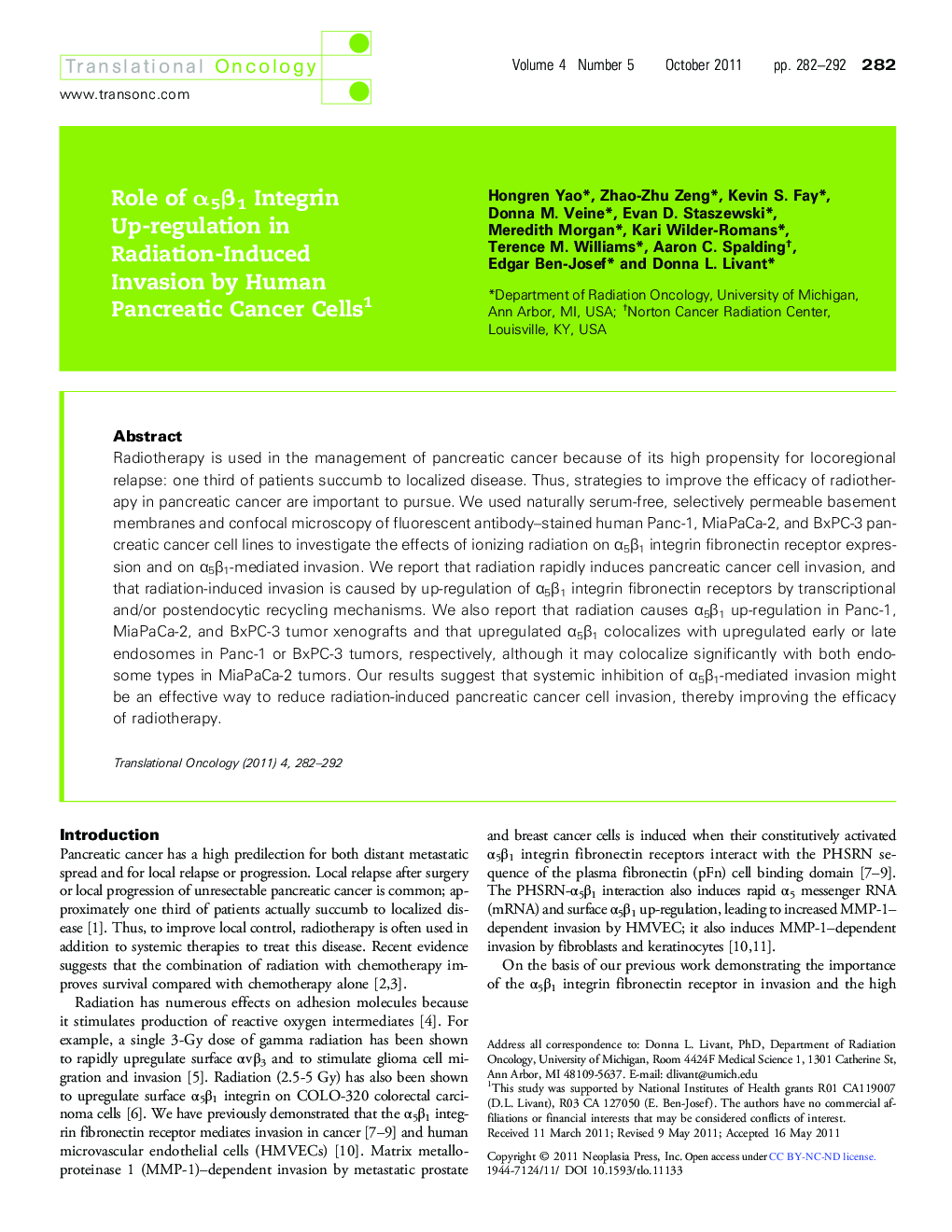| Article ID | Journal | Published Year | Pages | File Type |
|---|---|---|---|---|
| 2163597 | Translational Oncology | 2011 | 11 Pages |
Radiotherapy is used in the management of pancreatic cancer because of its high propensity for locoregional relapse: one third of patients succumb to localized disease. Thus, strategies to improve the efficacy of radiotherapy in pancreatic cancer are important to pursue. We used naturally serum-free, selectively permeable basement membranes and confocal microscopy of fluorescent antibody-stained human Panc-1, MiaPaCa-2, and BxPC-3 pancreatic cancer cell lines to investigate the effects of ionizing radiation on α5β1 integrin fibronectin receptor expression and on α5β1-mediated invasion. We report that radiation rapidly induces pancreatic cancer cell invasion, and that radiation-induced invasion is caused by up-regulation of α5β1 integrin fibronectin receptors by transcriptional and/or postendocytic recycling mechanisms. We also report that radiation causes α5β1 up-regulation in Panc-1, MiaPaCa-2, and BxPC-3 tumor xenografts and that upregulated α5β1 colocalizes with upregulated early or late endosomes in Panc-1 or BxPC-3 tumors, respectively, although it may colocalize significantly with both endosome types in MiaPaCa-2 tumors. Our results suggest that systemic inhibition of α5β1-mediated invasion might be an effective way to reduce radiation-induced pancreatic cancer cell invasion, thereby improving the efficacy of radiotherapy.
